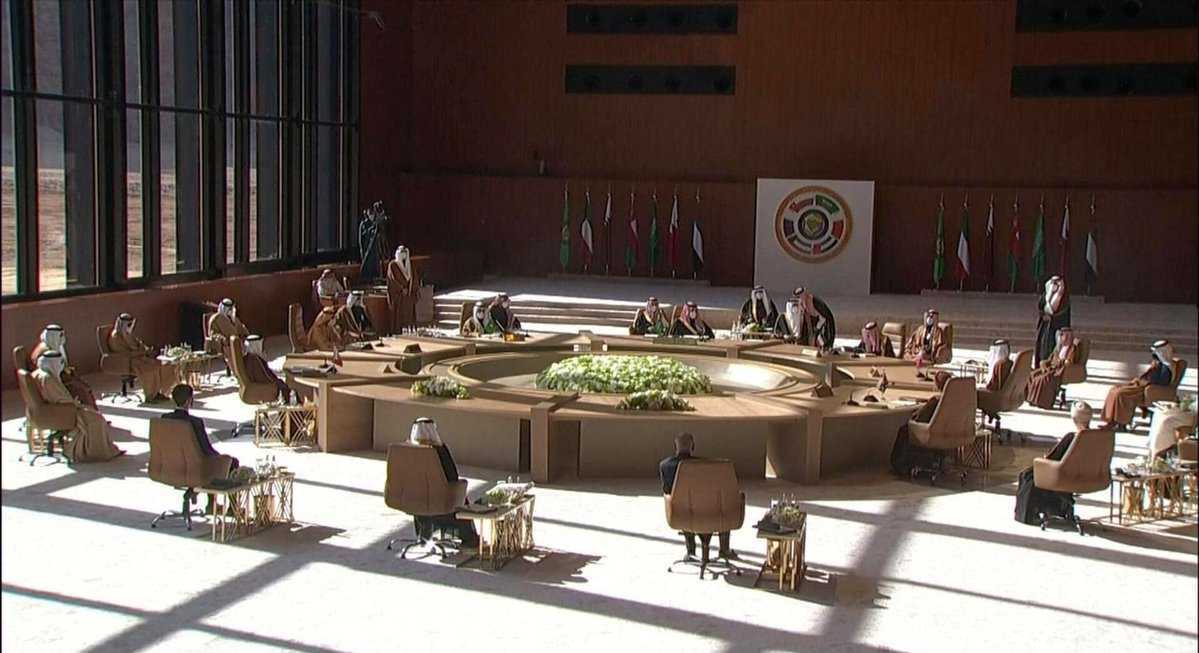Gulf nations and residents united in celebration on Tuesday as authorities announced a full restoration of diplomatic relations between Qatar and the blockading countries. Here is all you need to know about the Al-Ula declaration.
Leaders and diplomats of the Gulf Cooperation Council met in Saudi Arabia on Tuesday to sign the much-anticipated Al-Ula Declaration that put an end to the Gulf crisis.
The declaration, signed by the blockading quartet and Qatar, closed a gloomy chapter in GCC relations that posed a serious threat to the unity of the bloc as well as security in the region.
But what happened at the 41st GCC Summit and what were the outcomes? Here is all you need to know:
After more than three-years of fractured relations, members of the GCC agreed to unite for regional peace and security, vowing to cooperate to tackle major issues, including the COVID-19 health crisis, according to a statement published by the bloc.
The summit also saw leaders and representatives agree to work together to face new challenges by improving military integration under the supervision of the GCC defence council and military committee.
Read also: BREAKING: Full diplomatic relations to be restored between Qatar, blockading GCC states
The statement also made mention of the GCC on the world stage, vowing to form strategic partnerships with regional and international partners to enhance its role with the international community.
More crucially, the three-year dispute separated residents of all the countries involved, many of which were forced to return to their countries after ties were severed. The declaration removes such obstacles and ensures a full lifting of travel restrictions imposed.
Notably, Egypt also realigned itself with the Gulf by signing the declaration and opened up its airspace for flights to and from Cairo. Saudi Arabia, the UAE, and Bahrain have also lifted their embargos, allowing for residents to be reintegrated and reunited. GCC citizens will now have freedom of movement, investment, employment and equal opportunities in education and healthcare across the region, the statement said.
The declaration also ordered GCC states to unify their markets to ensure complete economic integration and assist economies in the region after a difficult few years.
Meanwhile, the GCC vowed to cooperate to combat the novel coronavirus – described as a threat – that has brought much of the world to a standstill.
In his closing speech, GCC’s Secretary General Nayef Falah Mubarak Al-Hajraf ordered the activation of the Gulf Centre for prevention of diseases to tackle the virus.
The GCC member states also announced a shared desire to combat terrorism and crime and called for an increase in transparency and communication between the nations.
On Tuesday, Saudi Arabia’s foreign minister said full diplomatic relations between Qatar and its neighbouring Gulf states, as well as Egypt, will be restored.
“What happened today is… the closure of the folder of all points of difference and a full return of diplomatic relations,” Prince Faisal bin Farhan told a press conference to conclude the landmark regional summit.
The remarks came just hours after Qatar’s Amir Tamim bin Hamad Al Thani and Saudi Crown Prince Mohammed bin Salman signed the declaration to end the Gulf dispute during a ceremony at the 41st GCC Summit.
Follow Doha News on Twitter, Instagram, Facebook and Youtube







